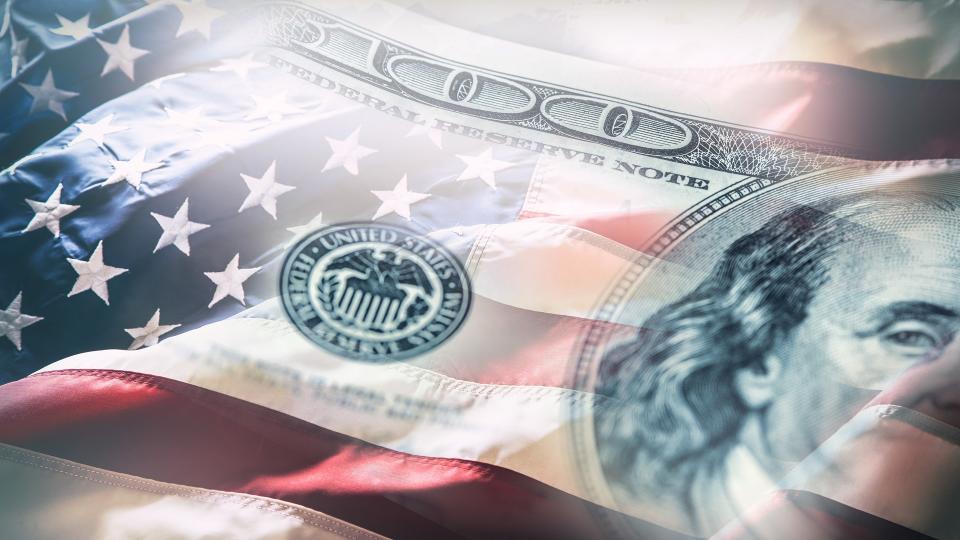US Millionaire Math: What 22M Wealthy Americans Means for the Economy

The millionaire population in the U.S. is growing. There are 22 million of them in the country, representing 8.8% of the total population — a whopping 39% of millionaires in the world, according to Zippia. But are these individuals impacting the overall economy? And if so, are there particular sectors they are affecting?
Check Out: What Is the Median Household Income for the Upper Middle Class in 2024?
I’m a Frugal Self-Made Millionaire: 6 Things I Never Waste Money On
To put this in context, their number ballooned in the past year, with the U.S. adding the most millionaires in the past year, according to Capgemini’s World Wealth Report. Indeed, as CNBC noted when citing the report, the U.S. added 500,000 millionaires last year — and this specific segment grew 7.3% in 2023.
In total, this demographic’s total wealth grew by $26.1 trillion, up 7% from 2022, CNBC added.
There were several drivers behind this surge, as Capgemini noted in its report:
“Solid economic resilience, cooling inflationary pressures, and a formidable US equity market rally drove momentum,” the report said. “The S&P ended the year with a 24% gain, while the Nasdaq Composite was up nearly 43%, driven by revitalized tech stocks. Interest in AI catalyzed the tech rally, bolstering U.S. equities.”
In addition, Capgemini suggested that government-led spending initiatives, such as the CHIPS Act and the Inflation Reduction Act, helped boost capital growth and spurred manufacturing investment activity in the private sector.
While American millionaires have benefited from several macroeconomic conditions, experts said this demographic reciprocally impacts the country’s economy.
“Millionaires might get a bad rap at times for not contributing enough to the economy or not paying their fair share taxes, but they generally improve the economy more than hurt it,” said Michael Collins, CFA, founder and CEO, WinCap Financial.
Wealthy people know the best money secrets. Learn how to copy them.
Impact on Employment
Peter C. Earle, senior economist with the American Institute for Economic Research, noted that a large portion of wealthy Americans — either directly or indirectly, passively or actively — own businesses.
“What this means is that they are the major engine for creating, sustaining, and growing U.S. employment,” added Earle.
WinCap’s Collins echoed the above sentiment, noting that as millionaires are often entrepreneurs who have built successful businesses, they create jobs for others in the process. This means they contribute to job growth and employment opportunities across the nation.
Financial Markets: A Potential Exodus of the Wealthy?
According to Earle, concentrations of capital can create what he deemed “herd-like effects,” including among wealthy individuals.
“If, for example, the 2025 U.S. budget proposal were passed as is, and domestic capital gains taxes for high-net-worth individuals were suddenly poised to increase to levels that would exceed 50% (when combined with state taxes), a rapid exodus from financial markets might ensue,” said Earle.
In turn, he added, sudden, large outflows of capital — in this case by affluent investors acting at once and taking profits before a confiscatory tax takes effect — could lead to widespread losses.
“But exogenous shocks are an inherent aspect of investing,” he noted.
Millionaires and the US Housing Market
These wealthy individuals are also having an impact on the housing market, according to some experts — something that Capgemini also mentioned in its report.
“Despite rising mortgage rates, global luxury real estate markets surged. Prime locations like London, New York and Dubai witnessed luxury property sales averaging over $20 million. New York saw a solid showing with a 9% increase in high-end deals in the final quarter of 2023, compared to the same period in 2022,” Capgemini’s research stated.
In fact, a Redfin report found that 34.5% of homes bought in February were purchased with cash.
“Cash is king in the housing market,” said home equity and housing expert Michael Micheletti, chief communications officer at Unlock Technologies. “Even though mortgage rates aren’t as low as they once were, more and more people are buying homes outright — made possible by the growing wealth of a relatively low percentage of citizens.”
According to him, this cash-buying trend has been gaining momentum in recent months. This reality is further putting pressure on an already difficult housing market, and has left many buyers on the sidelines lately.
“This surge in all-cash buyers is reducing inventory for would-be buyers who need financing — including many, if not most, first-time buyers — as typically home sellers will opt to accept an offer from all-cash buyers first,” he said.
Consumer Spending and Taxes
WinCap’s Collins also argued that millionaires tend to have higher levels of disposable income, which they use to purchase goods and services, further fueling the economy by increasing consumer spending.
Finally, he said, an additional way millionaires aid the economy is through tax revenue, as millionaires typically pay a higher amount of taxes compared to individuals with lower incomes.
“This tax revenue is then used by the government to fund public services and programs that benefit society as a whole,” said Collins.
Yet, he also stressed that even with all these positives, the concentration of wealth among millionaires can contribute to income inequality in the country.
“While this may have negative effects on social cohesion and economic stability, it can also serve as a motivation for individuals to strive for financial success,” he added.
More From GOBankingRates
This article originally appeared on GOBankingRates.com: US Millionaire Math: What 22M Wealthy Americans Means for the Economy

 Yahoo Finance
Yahoo Finance 